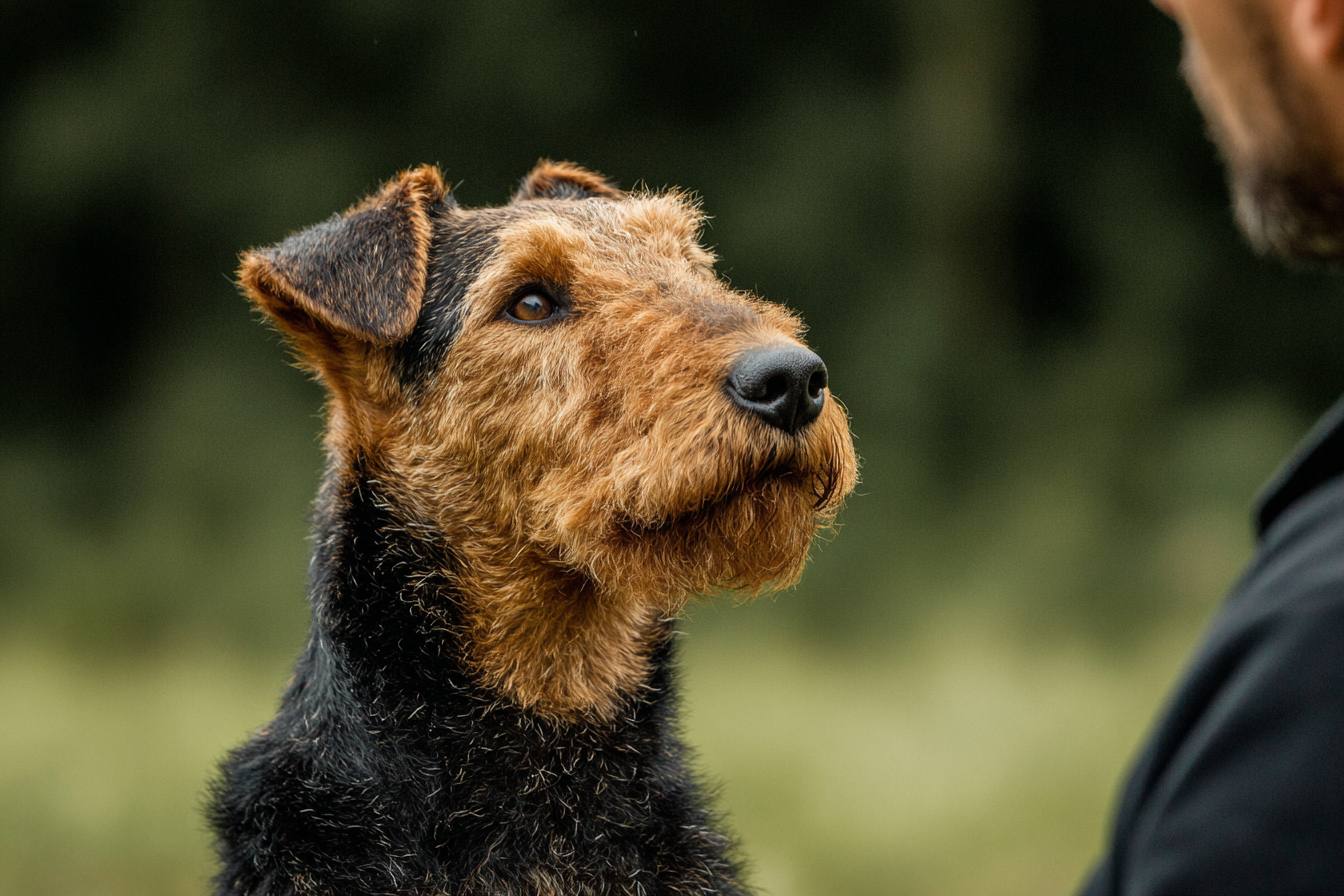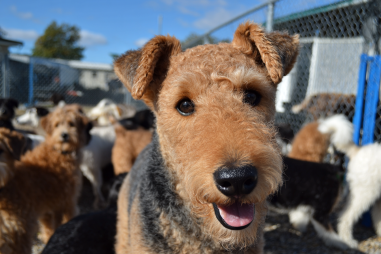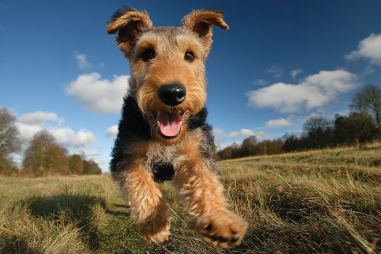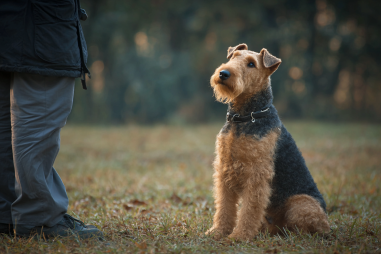Airedale Terriers are known for their intelligence, versatility, and spirited nature, making them a favorite among dog enthusiasts. However, training these clever canines can sometimes feel like an uphill battle due to specific behavioral tendencies and personality traits. Understanding the common challenges associated with Airedale Terrier training—and learning effective strategies to overcome them—can help owners foster a well-mannered, happy companion.
Typical Behavioral Issues in Training
One of the first things you’ll notice when training an Airedale Terrier is their tendency to test boundaries. These dogs are naturally curious and intelligent, which means they quickly pick up both good behaviors and undesired habits. Common behavioral issues include stubbornness, high energy levels, and difficulty focusing during training sessions. Awareness of these patterns is the first step in tailoring your approach to your dog’s unique personality.
Dealing with Stubbornness and Independence
Airedales are fiercely independent dogs. Unlike some breeds that immediately seek approval from their owners, Airedales often display a stubborn streak that can make training sessions challenging. They may ignore commands if they don’t see a clear benefit or feel like doing it on their terms.
To successfully train a stubborn Airedale, patience and persistence are essential. Short, positive training sessions that emphasize rewards rather than punishment encourage cooperation. Use high-value treats or your dog’s favorite toy as motivation, and always praise good behavior immediately to reinforce lessons effectively. Keeping commands consistent and clear helps reduce confusion, making your dog more likely to follow through.
Housebreaking Setbacks
Housebreaking an Airedale Terrier can be tricky, especially if you’re dealing with setbacks like accidents inside the house after initial progress. These intelligent dogs can be quick learners but may also get distracted or react to changes in their environment, affecting their potty training routine.
Establish a consistent schedule for feeding, walking, and bathroom breaks. Supervise your dog closely during the early stages of training to prevent accidents, and never punish for mistakes—this can cause anxiety and confusion instead. Instead, focus on rewarding your Airedale when they go outdoors. Cleaning accidents promptly with enzymatic cleaners removes odors and decreases the likelihood of repeat offenses.
Managing High Energy and Distraction
Airedale Terriers are energetic dogs that need ample physical and mental exercise. Without enough stimulation, they can become restless and easily distracted during training sessions. This can manifest as loss of interest, jumping around, or wandering off when asked to focus.
To manage their energy, incorporate plenty of daily exercise such as brisk walks, obedience drills, or interactive play. Mental enrichment activities like puzzle toys or scent games keep their sharp minds engaged. When training, start in a quiet environment with minimal distractions, gradually increasing complexity as your dog’s focus improves. This approach helps your Airedale remain attentive and motivated.
Addressing Barking and Digging
Barking and digging are two behaviors that often frustrate Airedale owners. These actions can stem from boredom, anxiety, or natural instincts, but when left unchecked, they become disruptive habits.
To curb excessive barking, determine what triggers the behavior—whether it’s strangers, excitement, or boredom. Teaching your dog a “quiet” command, combined with positive reinforcement, gives you control in noisy situations. For digging, providing an outlet like a designated digging area or engaging activities reduces the urge to dig destructively. Consistent redirection and rewarding calm behavior help your Airedale learn acceptable ways to express energy and curiosity.
Learning Timing and Reward Systems
Timing is everything in dog training, and Airedales respond best to immediate rewards. Delayed praise or treats reduce effectiveness, as your dog may not connect the reward to the behavior. Delivering rewards within seconds of desired actions strengthens learning significantly.
Variety in rewards keeps training interesting for your Airedale. Alongside treats, verbal praise, petting, and short play sessions are valuable reinforcements. Recognizing subtle improvements and rewarding them appropriately maintains your dog’s enthusiasm and builds a strong bond.
Socialization-Related Challenges
Proper socialization is crucial for Airedale Terriers, as it influences their attitude toward other dogs, animals, and people. If under-socialized early on, they may develop fearfulness, aggression, or over-protectiveness.
Expose your dog to varied environments, people, and other dogs in a controlled, positive manner from a young age. Puppy classes and group walks are excellent opportunities for socialization. Pay attention to your Airedale’s body language and step back or remove them from uncomfortable situations to avoid negative experiences during this process.
Consistency and Owner Involvement
One of the most significant factors in overcoming training challenges with Airedale Terriers is consistent effort from the owner. Mixed messages or irregular routines confuse the dog and slow progress. Consistency in commands, rules, and rewards creates a predictable framework for your Airedale, making it easier for them to learn.
Owner involvement is equally important—spending quality time training, playing, and interacting builds trust and helps your dog respond better to guidance. Make training a fun and integral part of your daily routine rather than a chore, and your Airedale will be more motivated to participate.
Seeking Professional Help When Needed
If training challenges persist despite your best efforts, don’t hesitate to seek professional help. Certified dog trainers or behaviorists experienced with Airedale Terriers can offer personalized advice and techniques tailored to your dog’s specific needs.
Professional guidance is especially beneficial for addressing serious behavioral issues or if you feel overwhelmed by your dog’s energy levels or independence. Early intervention often prevents problems from escalating and ensures a harmonious home environment.
Encouraging Long-Term Good Behavior
Training an Airedale Terrier doesn’t end once basic commands are mastered. To encourage long-term good behavior, maintain regular training sessions, introduce new skills, and keep your dog mentally and physically stimulated.
Continuously rewarding desirable behaviors and setting clear boundaries throughout your dog’s life helps reinforce lessons learned. Celebrate your Airedale’s successes and keep your relationship strong with positive interactions. A well-trained, happy Airedale Terrier is a loyal companion who thrives on challenge, love, and consistent care.
Training an Airedale Terrier can be a rewarding journey filled with moments of frustration and tremendous joy. By understanding the challenges these unique dogs present and applying patient, consistent, and positive techniques, you’ll nurture a well-behaved and loving dog that’s a true joy to have by your side.







